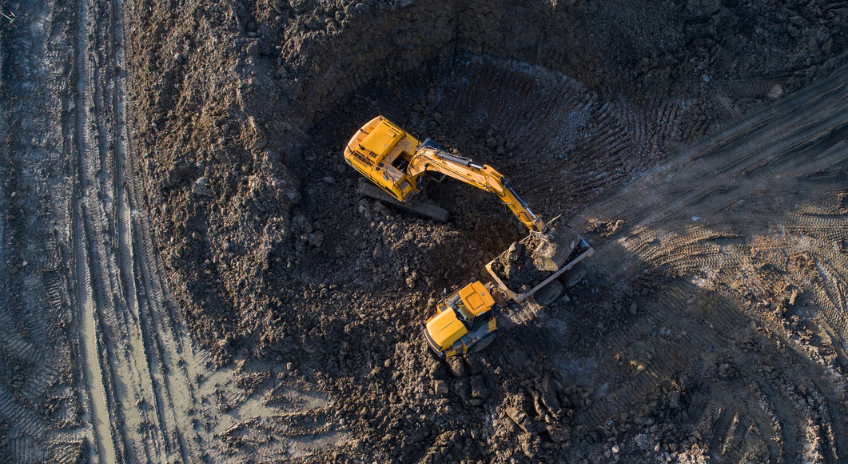
Construction Operations and COVID-19 – What You Should be Thinking About
Date: 21/04/2020 | COVID-19, Construction, Dispute Resolution, Real Estate, Residential Development
The current spread of COVID-19 has left many businesses, including those operating in the construction industry, uncertain about what this means for them and what steps they should be taking to protect their business.
As matters currently stand, the Scottish Government has advised that construction operations in Scotland should cease (unless they involve essential works ie. construction of a hospital etc) but construction operations are still permitted in England and Wales provided the industry guidance is followed. However, given the conflicting approaches north and south of the border and the mixed messages currently emanating from the UK Government, this could change at any minute and industry players should ensure that they’re prepared for a suspension of operations.
What should you therefore be thinking about now? We’ve highlighted below some of the main points for consideration.
Health/Safety
Of primary concern is the health and safety of the construction workforce. The Construction Leadership Council has published guidance for sites which are still operating. If you do not consistently implement the measures set out in the guidance, your site is at risk of being shut down.
Should your site close, then you should ensure appropriate measures are in place to safely secure the site and protect any materials and equipment which remain on site.
Delay
This is an area where we frequently see parties fail to comply with the terms of their contract, often resulting in dire consequences. Read your contract, understand the obligations you have to notify of a delay and note when these notices need to be served. If you’re a developer or contractor and you think your project will not meet the stipulated time for completion, then make sure you understand the time and cost implications of this and how to appropriately deal with those under your contract.
Contractors should also consider how COVID-19 delays may impact their ability to obtain project materials and how lead-in times may be affected.
Insurance
Your insurance policy may provide cover in the event of an enforced shut down of construction operations or if your business is otherwise disrupted as a result of COVID-19. If you think you may have a claim under your insurance policy, then you should ensure that appropriate details of the claim are notified to your insurer in accordance with the terms of your policy agreement. If you’re concerned about whether you are covered for a particular claim, then we’d recommend speaking to your insurers.
Suspending or Terminating Operations
If you are considering suspending or terminating performance under a contract, then you should first check that you are contractually permitted to do so. If you are, then your contract is likely to set out the process and consequences of suspension or termination. These actions can have significant consequences and we would recommend that anyone considering suspending or terminating performance fully understands these before doing so.
Third Party Obligations
You should be clear on the obligations you have under third-party agreements, such as agreements for lease or funding agreements. For example, these agreements are likely to require you to report on anticipated delays or other significant changes to your construction operations.
Notices
Construction contracts and third-party agreements often contain short notice periods which require strict compliance. Start thinking now about what notices you may need to serve and the deadlines for doing so. If you are likely to require to serve notices soon, then we’d suggest that you have these prepared and ready to go. This will be particularly important given the changes to the Royal Mail’s delivery service and potentially unexpected delays.
Communication
Our advice here is simple. Don’t leave it too late to start communications with the relevant parties, whether that be your employer, contractor, sub-contractors, consultants, insurers, funders, tenants, etc. Open and direct lines of communication will be key in managing the short and long term effects that COVID-19 may have on your construction operations.
Adjudication
It’s business as usual as far as adjudications are concerned, and there will be no relaxation of the statutory timetable for the appointment of adjudicators or the adjudication process. However, it’s very likely that some adjudicators will be seeking extra time from the parties given the practical difficulties of working from home and, should parties not be minded to grant that, there could be a rise in the collapse of adjudications from the resignation of the adjudicator.
Parties on the receiving end of an adjudication should act fast and coordinate with their team to ensure that those who need to be involved in the response can be and to ensure that all documents necessary can be collated quickly. Parties seeking to serve an adjudication would do well to remember that, unless it’s absolutely necessary to raise now, they will not be doing themselves any favours with the other side and people involved in construction tend to have long memories. Further, the availability of solicitors and experts is likely to be very limited, meaning they may not be well placed to present the best arguments on your behalf. Wherever possible, it would be preferable to reach an agreement right now rather than proceeding with an adjudication.
As always, but particularly in these uncertain times, it’s important that you know what’s in your contract. Know your rights, know your obligations and above all, be prepared.
If you have concerns regarding your project and how this may be affected by COVID-19 then please contact us.
We’ll be updating this article as more information becomes available so please check back regularly for both updates and further articles as the COVID-19 situation develops.
Stay safe and remember, we’re here to help.
*The second version of the Site Operating Procedures (published on 1 April 2020) was withdrawn by the Construction Leadership Council two days after publishing. The current version of the procedures, version 3, was published on 14 April 2020 and is now linked above. A notable change to the current version is the introduction of a “Hierarchy of Controls” which should be considered where workers are not able to maintain a two-metre distance. In that case, it should be considered whether the activity should continue and, if so, risk assess it using the hierarchy of controls and against any sector-specific guidance.
The current Site Operating Procedures now also includes a nod to the fact that there is conflicting guidance North and South of the border and states that these procedures are based on Public Health England (PHE) guidance and other restrictions and advice may apply in Scotland, Wales and Northern Ireland. The Coronavirus construction sector guidance publish by the Scottish Government can be found here.


























































































